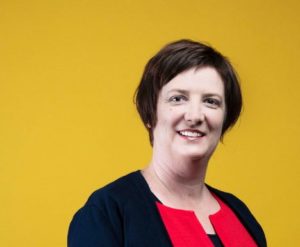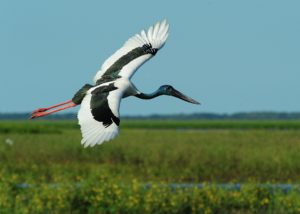
New developments at the Flinders Caring Futures Institute while drama graduates, authors and photographers enjoy their time in the spotlight.
Caring Futures Institute Deputy Director

Flinders University Professor of Nutrition and Dietetics Rebecca Golley has been appointed as inaugural Deputy Director of the Caring Futures Institute, commencing in February for a two-year term.
Going beyond technological barriers for health equity
Several researchers from Flinders University, the Caring Futures Institute (CFI) and many other experts in digital technologies recently presented alongside the former Prime Minister, the Hon Julia Gillard AC, at the Australasian Institute of Digital Health inaugural conference: Digital Health Institute Summit 2020 in the Adelaide program on 25 November.
Ms Gillard’s presentation: ‘Real people. Real experience. Using digital technology for good’, focused on access and equity to digital mental health solutions as part of long-term healthcare planning. A similar approach was taken by Dr Maria Alejandra Pinero de Plaza, CFI postdoctoral research fellow, who also holds a joint position with the NHMRC Centre of Research Excellence in Frailty and Healthy Ageing.

Dr Pinero de Plaza and her CFI colleagues are co-leading a study with consumer representatives of the Frail, Homebound and Bedridden People (FHBP) in Australia. In their research, they found that existing interventions, enhanced by technologies, can easily mitigate and prevent loneliness, social isolation, and health marginalisation of FHBP nationally.
They indicated that current practices and knowledge can be effectively operationalised, for example using wearables sensors, systems mapping, social media and robots for virtual connection, distant monitoring, and care. However, they emphasised that the real gap is not a technological one but developing and disseminating a social and epidemiological understanding of FHBP.
Dr Pinero de Plaza explained that this group is not registered and therefore is being excluded from basic health services like access to a GP via telehealth. According to Dr Pinero de Plaza, the problem is that FHBP are not seen or considered as a group.
“We don’t have national data about this population because researchers and the healthcare system are dividing this group into artificial silos or diseases classifications,” she says. “We have to understand that the most important feature shared by all members of the FHBP group is that they are trapped and unable to leave home without help from someone else. Therefore, they cannot access a GP and cannot get simple things that the rest of us take for granted.”
The FHBP study also involved Dr Alline Beleigoli, Ms Alexandra Mudd, Dr Matthew Tieu, Dr Michael Lawless, two consumer co-researchers Ms Penelope McMillan and Ms Ricky Buchannan, Dr Rebecca Feo, Dr Mandy Archibald and Professor Alison Kitson. This team found that homebound people are asking for:
- Education for all health professionals and service providers about people with their needs
- Education for Centrelink, NDIS, and government services about paperwork difficulties (e.g. providing more time or accepting GP reports rather than specialist paperwork only)
- Access to community care services (e.g. NDIS, aged care packages)
- Receiving adequate Medicare rebates for home visits
- Extending the existing telehealth/telephone consults for rural and remote patients to also cover patients who are housebound or bedridden in metropolitan locations
Reprise of Sea Wall set for Adelaide Fringe

An Adelaide Fringe theatre production of the acclaimed drama Sea Wall – running at the Space Theatre in the Adelaide Festival Centre from 16-21 February, 2021 – has significant Flinders influence, being directed by Drama graduate David Mealor and staring one of Flinders’ drama lecturers Renato Musolino.
Sea Wall, written by award-winning playwright Simon Stephens, had its world premiere in 2008 receiving rave reviews in the UK’s major papers. The South Australian premiere of Sea Wall was presented in 2018 by Flying Penguin Productions (established by Mealor in 2005), when it achieved unanimous critical acclaim and featured prominently in the SA Theatre Awards for the year, with Mealor winning the prestigious Adelaide Critics’ Circle Award for Outstanding Achievement by an Individual and Musolino winning the Adelaide Theatre Guide Award for Best Actor. Tickets for the coming Fringe season of Sea Wall will go on sale at bass.net.au when Fringe tickets go on sale this month.
Flinders staff are invited to email newsdesk@flinders.edu.au to win one of two free passes to the preview matinee show of Sea Wall.
New book traces the struggles of Country custodians
The Children’s Country: The Creation of a Goolarabooloo Future in North-West Australia is new book by Flinders University Professor Stephen Muecke and long-time collaborator Paddy Roe. Recently published by Rowman and Littlefield International, the book reflects on events in north-west Australia between 2009 and 2013, when a major Indigenous-environmentalist alliance waged a successful campaign to stop a huge industrial development – a $45 billion liquefied gas plant proposed by Woodside and its partners. The West Australian government and key Indigenous institutions also pushed hard for this, making the custodians of the Country, the Goolarabooloo, an embattled minority.
This experimental ethnography documents the Goolarabooloo’s knowledge of Country, their long history of struggle for survival, and the alliances that formed to support them. Written in a ficto-critical style, it introduces a new ‘multirealist’ kind of analysis that focuses on institutions (Indigenous or European), their spheres of influence, and how they organised to stay alive as alliances shifted and changed.
Vaccines ‘not enough’, experts warn
Vaccines won’t be enough to keep Australia safe from COVID-19 in 2021, a review commissioned by the Australian Academy of Health and Medical Sciences (AAHMS) finds in a new report.
High levels of testing, efficient vaccine distribution and addressing pandemic mental health impacts are critical if Australia is to maintain control over COVID-19 in 2021, the country’s learned body for health and medical sciences has concluded.
More than 400 senior researchers, including Flinders University Professor Fran Baum, support the AAHMS COVID-19 team and its latest report on the necessary next steps for pandemic response in the new year.
“The pandemic has most adversely affected certain groups, including people who have lost their jobs, casual workers, low income people and Aboriginal and Torres Strait Islander peoples (point 4 in the report),” Professor Baum says.
“I also gave input about the need for the COVID-19 vaccine to be shared with low and middle income countries as well as high income countries like Australia, and shared in a manner that was affordable and accessible to those countries.”
Outstanding Flinders NT photo winners announced

The winners have been announced in the Flinders NT Regional Training Hub and the Northern Territory Medical Program’s inaugural photography competition, 2020 NT Rural and Remote Moments – and the judges have issued high praise for the quality of work and the effort participants who entered the competition.
The competition attracted a total of 65 images from 17 participants across four categories; Lifestyle; Landscape; Critters of the NT; and On the Job. The images submitted showcase living, training or working as a either a medical student or doctor in the Northern Territory.
The photos were assessed anonymously and marked by a panel of three judges across the set criteria, selecting a winner from each category and an overall winner. A video highlighting all the winning images can be accessed here.

